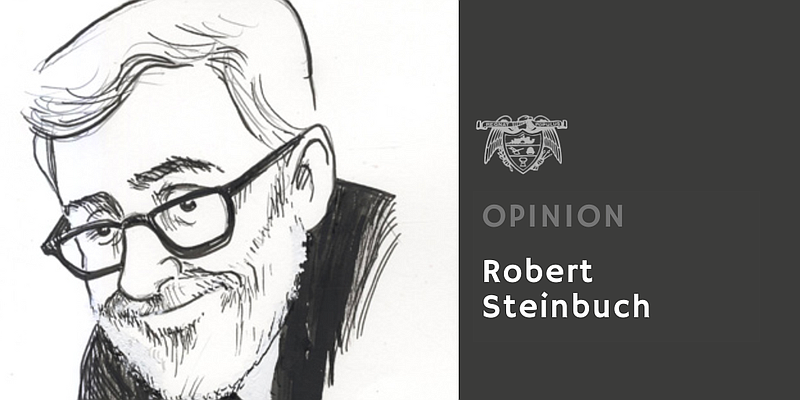I smile when lawyers tell me they want to become professors after they retire. Apparently, to them, academia is equivalent to playing shuffleboard at Del Boca Vista.
The false perception that academia is a side hustle largely arises from confounding the entire enterprise with the act of classroom lecturing--which is merely part of one of academics' three responsibilities of teaching, scholarship, and service.
Indeed, teaching itself is far more than just lecturing. Good instructors spend more time preparing for classes than conducting them.
Scholarship--publishing intellectually rigorous books and articles--is the defining function of higher-education academics. Several of my Bowen Law School colleagues, for example, write textbooks--including Josh Silverstein, who co-authors the most popular one in the nation for contracts law.
More significantly, professors routinely author scholarly books reaching far beyond the ivory towers. You're likely aware of my treatise on the Freedom of Information Act (FOIA) used by Arkansas judges, lawyers, and lay people alike. (But enough about me!)
Many professors at my university (UA Little Rock) also write scholarly books attracting popular interest. Here are a few:
Daniel Berleant, professor of information science, fascinatingly gazes upon possible future realities and how we'll deal with them in "The Human Race to the Future: What Could Happen--and What to Do."
John Kirk, historian, penned a tome on Winthrop Rockefeller, the New Yorker who came to Arkansas. (Wait, this isn't about me!)
Rockefeller, the first Republican governor of Arkansas since Reconstruction, is perhaps best known for passing the state's FOIA (my favorite!).
Julien Mirivel in the communications department co-authored a book titled "Positive Communication for Leaders," useful for folks in business, government, and education.
These examples not only gainsay the conflation of teaching with professoriate's broader duties, but also the stereotype of academics authoring unseen codices collecting cobwebs in cramped-library cellars.
The third leg of academic work--public service--includes writing op-eds; serving on government and charitable commissions, committees, and taskforces; media appearances; and public lectures.
For instance, I'm the chair of the Arkansas Advisory Committee to the U.S. Commission on Civil Rights. Several academics--UA Fayetteville law dean Cynthia Nance, law professor Danielle Weatherby, and education professor Bob Maranto--along with various professionals serve on this committee with me.
The committee recently investigated educational opportunities and access issues for disabled students in Arkansas. Our report provides concrete recommendations for improvement.
None of this is to say that academia is brick laying or lumberjacking. That's hard work! But academia is far more than teaching--no less just the classroom component.
Since the academic stool only stands when all three legs are in symbiosis, I cringe when I hear the claim a given university "is a teaching school" or a subdivision is a "teaching department."
All universities (and their components) are teaching institutions. That's the floor, not the ceiling. But if that's all they do, they almost invariably don't do it very well.
Good universities, in contrast, are teaching, scholarship, and service institutions precisely because publishing and service undergird teaching.
As such, I'm disquieted by the displacement of professional academics resulting from the significant growth of part-time (adjunct) faculty. These folks--earnest as they are--generally teach without engaging in scholarship and service, without dedicating comparable time to class preparation, and without honing their skills in the vocation.
You wouldn't employ a surgeon who only performs operations on the side, a lawyer who only works on weekends, and a chef who only cooks occasionally. We need to treat the profession of professor the same, for the good of our children.
Moreover, diminishing the professional professoriate only worsens universities' frightening under-representation of conservative views, because adjuncts largely don't enjoy protections to express ideas disfavored in higher education, i.e., conservative ones.
While administrators (who inhabit the largest growth area in academia and are profoundly progressive) often prefer muted faculty as significantly as they profit from the reduced expense of hiring gig employees, the loudest voices opposing safeguarding professors' articulation of unpopular views in overwhelmingly leftist academia surprisingly come from some conservative circles--notwithstanding that their intellectual kin most benefit from these protections.
This misplaced reaction to an understandable frustration with the lack of intellectual diversity within universities will only expedite suffocating the few embers of conservatism still glimmering in higher education today.
It's a Brobdingnagian understatement to call ironic the actions of these conservatives who unwittingly find common cause with--and blindly do the bidding of--zombified wokesters driven on excommunicating right-of-center ideas from public debate in a secularist-leftist bonfire of the vanities.
Being an academic is a joy (notwithstanding the side-eye from certain lawyers, administrators, and mistaken conservatives). We help the next generation learn, interact with people on topics about which we're passionate, and write on issues of the day with the hopes that others will use our words to improve civilization.
Judaism calls this world betterment "tikun olam," and ascribes a deeper purpose: pursuing perfection allows us to find God in the details. That's why academia--to re-imagine Danny Rojas' marvelous mantra--is life.
This is your right to know.
Robert Steinbuch, professor of law at the Bowen Law School, is a Fulbright Scholar and author of the treatise "The Arkansas Freedom of Information Act." His views do not necessarily reflect those of his employer.
